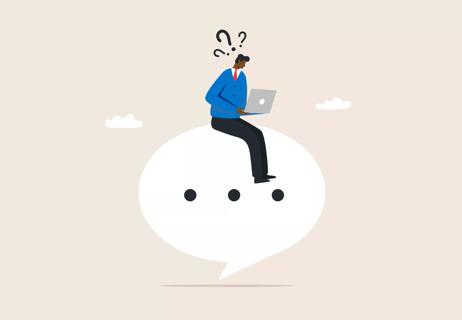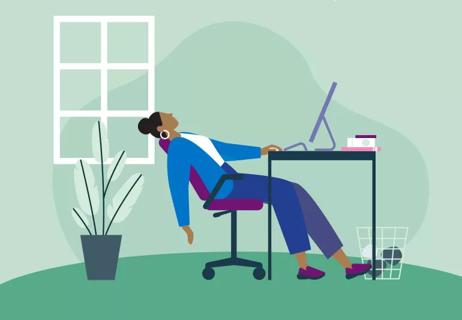Practical solutions for fighting flagging energy

Do you get drowsy after 2 p.m. every day? That energy lull can be a problem when you’re at work, on the road, or looking after kids or grandkids.
Advertisement
Cleveland Clinic is a non-profit academic medical center. Advertising on our site helps support our mission. We do not endorse non-Cleveland Clinic products or services. Policy
Preventive medicine expert Roxanne B. Sukol, MD, explains why energy levels may drop in the afternoon and how to pick them up. (Please note: If your fatigue lasts more than two weeks despite sleeping well, see your doctor. An underlying medical condition could be the cause.)
Daily levels of the hormone cortisol tend to rise and fall in a predictable rhythm that can cause your energy to flag in the afternoon. If your schedule permits, plan a 5- to 10-minute power nap in the early afternoon.
Chronic sleep deprivation puts you squarely behind the eight ball and worsens your afternoon slump. Don’t grab a soda for an afternoon pick-me-up. Coffee, dark chocolate and unsweetened iced tea are better options.
Eating lots of stripped carbs and sugar at any meal or snack spikes your blood sugars. This triggers the release of large amounts of insulin into your bloodstream. Then your blood sugars plummet, and you’re left exhausted and hungry. Remember that real food nourishes you, but manufactured calories entertain. It’s not that you can’t ever eat sugar or white flour, it’s just that when it comes to nourishing yourself, treats doesn’t go in the plus category.
Eat whole foods, quality protein and nourishing fats at breakfast and lunch to conserve insulin all day. Then your meals will stick to your ribs.
Advertisement
Cortisol works overtime when you’re super stressed. This leaves you feeling depleted and more susceptible to illness (like pneumonia or shingles) and injury (like sprains or strains). Set aside time to nourish yourself with loved ones, pets, prayer, reading, fishing, singing, hiking or making pottery. You’ll be better equipped to tolerate life’s ups and downs.
Activity raises levels of serotonin, a feel-good neurotransmitter produced in your brain and gut. Exercise also helps to stabilize your blood sugars.
“Too busy to get to the gym or yoga studio? Take a walk, it improves blood flow to your head,” says Dr. Sukol.
Fatigued for more than a couple weeks? If it’s not due to sleep deprivation, consult your doctor. Autoimmune diseases, untreated hypothyroidism, iron deficiency from heavy periods and many other medical issues can also present with fatigue.
Advertisement

Sign up for our Health Essentials emails for expert guidance on nutrition, fitness, sleep, skin care and more.
Learn more about our editorial process.
Advertisement

Drink some water, take a little walk, step away from your computer and chat with a coworker, or even your toddler, to help ward off daytime sleepiness

What’s on your plate can either help power you through your day or put you in nap mode

Eating turkey is only a small part of the reason you want to take a nap

Carve out time for yourself — and cut down the number of decisions you make each day

If you’re worn down and sluggish, it can be more than just feeling exhausted

Sleepiness and lack of energy aren’t the same thing

Don’t be misled by bogus answer to fatigue

A Q&A to help you fight exhaustion and get more sleep

Even small moments of time outdoors can help reduce stress, boost mood and restore a sense of calm

A correct prescription helps your eyes see clearly — but as natural changes occur, you may need stronger or different eyeglasses

Both are medical emergencies, but they are very distinct events with different causes